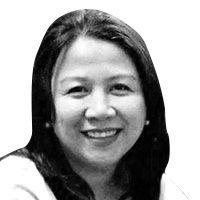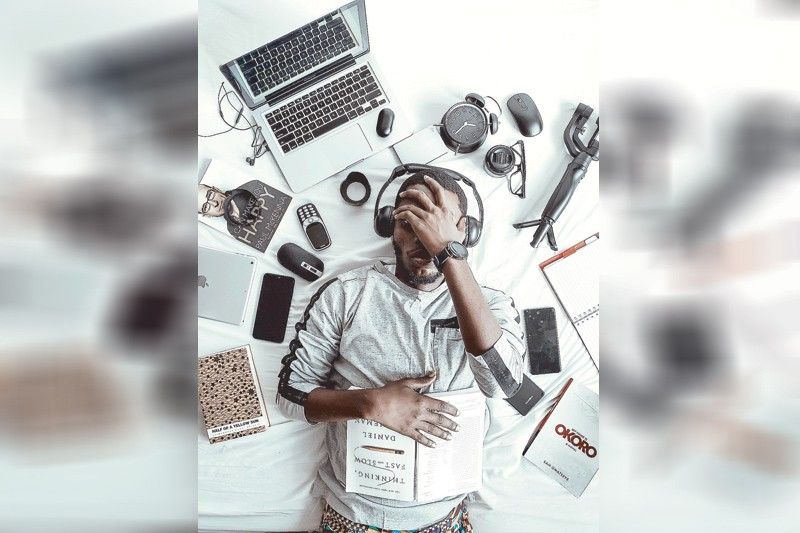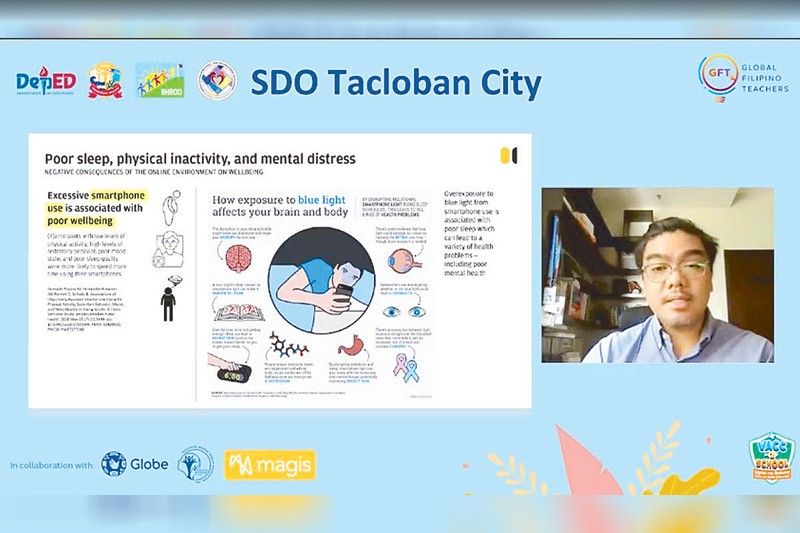Ways to manage your mental health and digital wellbeing


How’s your mental health?
Starting a convo with a close friend or a family member about their mental health can make both of you feel uncomfortable, but letting them know you care can make a difference to how they’re feeling.
“It’s not easy to recognize if one is mentally healthy or is having mental health issues,” says Dr. Jason Ligot, mental health promotion and communication consultant, World Health Organization. “In fact, we go through a spectrum of emotions and feelings in our day-to-day lives.”
On the other hand, being mentally healthy doesn’t necessarily mean that you’re always happy all the time.
“Normal changes in mood, reactions to stress are part and parcel of daily living. And that can also mean that you’re mentally healthy,” Dr. Ligot explains. “It’s also normal to feel irritable or nervous during these trying times.”
So, what are the danger signs we should never ignore?
“It’s when the nervousness leads to anxiety,” replies Dr. Ligot. “We become angry, we start to feel hopeless, and the sadness becomes persistent.”
And without appropriate medical intervention, this can lead to mental illness “where we slip into depression or excessive anxiety or even rage.”

Promoting digital wellbeing
Dr. Ligot is the guest speaker for the eighth episode of “TAYO Naman! (Tulong, Alaga, Yakap at Oras para sa mga Tagapagtaguyod ng Edukasyon),” a webinar series by Globe and the Department of Education (DepEd) on the topic of “Promoting Digital Wellbeing.”
According to Dr. Ligot, excessive usage of digital platforms, particularly on social media, may result in poor sleep, physical inactivity and mental distress.
Reports show that 80 percent of the population is active on social media. “That’s about 89 million people who are actively accessing all these different websites and social media platforms,” shares the mental health advocate.
“Ang sinasabi natin ay may mga pagkakataon na excessive o hindi na nakakatulong ‘yung time o panahon na ginugugol natin online sa ating mental health. If you have poor physical health, that will have a negative impact on your mental health as well. The key aspect here is finding a balance between our offline and online lives. That is the key to maintaining wellbeing. This is our reality now,” Dr. Ligot says.
Some red flags indicating social media’s negative effects on one’s mental health include interference with work, using it to escape destructive emotions, experiencing trolling and bullying, spending more time online than with other people, and heightened feelings of anxiety and depression.
To prevent these from happening, Dr. Ligot suggests limiting screen time, avoiding mean comments, being mindful of the platform used, focusing on existing connections, finding other hobbies, and spreading the love by engaging people in productive and helpful ways.
While there are many risks, digital platforms also offer several potential benefits if used properly. Dr. Ligot says these platforms could facilitate interaction among individuals to help them cope with their present situations, make them feel less lonely, and find the right support networks.
When his father passed away due to COVID-19, Dr. Ligot says they could not gather physically to console each other. Through digital platforms, even relatives and friends who live in different parts of the world were able to connect with the family and ease the emotional burden loss.
Moreover, digital platforms can be used for entertainment to relieve stress, promote health services like teleconsulting, and encourage mental health literacy for people to understand and make better choices towards their health.
The “TAYO Naman!” episode, hosted by the DepEd Schools Division Office of Tacloban City, was led by the DepEd Disaster Risk Reduction Management Services (DRRMS) and the Bureau of Human Resource and Organizational Development Employee Welfare Division (BHROD-EWD) in collaboration with Globe’s Global Filipino Teachers Series on Psychosocial Support Services, Philippine Mental Health Association, MAGIS Creative Spaces.
“TAYO Naman!” is an online mental health and psychosocial support program designed to help teachers, non-teaching personnel and parents learn about self-care, wellness and resiliency.
Globe strongly supports the United Nations Sustainable Development Goals such as UN SDG No. 3 on good health and wellbeing and UN SDG No. 4 on inclusive and equitable quality education for all. Globe is committed to upholding the United Nations Global Compact principles and contributing to 10 UN SDGs.
* * *
To learn more about how to create a #GlobeOfGood, visit www.globe.com.ph/about-us/sustainability.html.



















